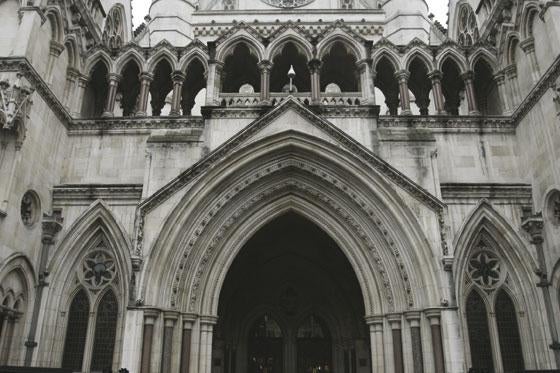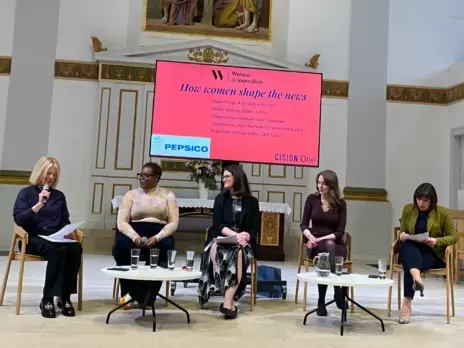
Science writer Simon Singh is to appeal against a judge’s decision that a comment piece he wrote in the Guardian amounted to a statement of fact rather than an expression of opinion.
The British Chiropractic Association (BCA) is suing Singh over an article which appeared in the newspaper on 19 April last year.
It claims that the third paragraph of the piece meant that it claims that chiropractic is effective in helping to treat children with colic, sleeping and feeding problems, frequent ear infections, asthma and prolonged crying, although it knows that there is absolutely no evidence to support its claims, and that by making such claims it is knowingly supporting bogus treatments.
Mr Justice Eady decided the issue of meaning at a hearing in the High Court on 7 May, upholding the BCA’s pleaded meaning and saying that Singh’s comments were factual assertions rather than mere expressions of opinion.
What mattered, the judge said, was whether those responsible for the BCA’s claims were aware at that time that there was no evidence to support them.
He added: “That is an issue capable of resolution in the light of the evidence called. In other words, it is a matter of verifiable fact.”
‘Enormous drain’
Singh, who has already spent £100,000 on the case, announced today that he was appealing against the ruling – and also announced the launch of a support campaign to defend the right of the public to read the views of scientists and writers.
“The British Chiropractic Association’s decision to sue me for libel has been an enormous drain on my time and energy,” he said.
“However, the support that I have received from family, friends, readers, bloggers, scientists, journalists and those who care about free speech has been incredible, and it has played a crucial role in my decision to continue defending my article and fighting the libel action.
He added: “Everyone agrees that there is something fundamentally wrong with the English libel laws, which have a chilling effect on journalists, whether they write about science or anything else, whether they live in Britain or anywhere else.
“I am delighted that so many individuals and organisations have come together to launch a campaign with Sense About Science to highlight how the English libel laws clash with the right to discuss science in a frank and fair way.”
The Guardian said in a statement that it had taken Singh’s article down from its website because it was the subject of a legal dispute.
The newspaper said: “We supported Simon and funded his legal advice when the case was brought against him.
“The recommended legal advice was to settle out of court and we offered to pay for the British Chiropractic Association’s costs should he choose to follow this course of action.”
‘Chilling effect’
The case has already attracted a considerable amount of media coverage and comment.
Salil Tripathi, a member of the executive board of the writers’ group English PEN, and of its committee to reform the libel laws, criticised the fact that the case was being brought in an article in today’s Wall Street Journal.
Under the headline “Britain Chills Free Speech” he said that the BCA could have challenged Singh in an open debate and provided the evidence he said did not exist.
“Instead, it sued the author for libel. In a remarkable ruling last month, Justice David Eady decided that Mr Singh’s article was defamatory because, according to the judge, Mr Singh implied that the association deliberately misled the public,” he said.
“Mr Singh, though, didn’t suggest that the chiropractors were being dishonest – after all, they might sincerely believe that their treatment is effective.
“He simply questioned the scientific validity of their claims. But that was no longer the issue.”
He added that the Advertising Standards Authority last month upheld a complaint against a chiropractor’s claim that he could treat children with colic and learning difficulties.”
The case has sparked a campaign for reform of the libel laws to protect free speech and open debate.
Widespread support
More than 100 leading figures from the worlds of science, literature, journalism, publishing and comedy are backing Singh’s case and the campaign, Keep Libel Laws Out of Science.
They have signed a statement which was today being sent to 10 Downing Street as well as the Department for Culture, Media and Sport and the Ministry of Justice.
They say that libel law should be kept out of scientific dispute, and that the BCA should be prepared to discuss the evidence it says supports the case for chiropractic in the public domain rather than in the libel courts.
Signatories include human rights expert Baroness Helena Kennedy QC, Lord Rees, writer Martin Amis, Professor Richard Dawkins of Oxford University and Professor Sir David King, the former chief scientific adviser to the government.
The statement says Singh holds that chiropractic treatments for asthma, ear infections and other infant conditions are not evidence-based.
It goes on: “Where medical claims to cure or treat do not appear to be supported by evidence, we should be able to criticise assertions robustly and the public should have access to these views.
“English libel law, though, can serve to punish this kind of scrutiny and can severely curtail the right to free speech on a matter of public interest.
“It is already widely recognised that the law is weighted heavily against writers: among other things, the costs are so high that few defendants can afford to make their case. The ease and success of bringing cases under the English law, including against overseas writers, has led to London being viewed as the ‘libel capital’ of the world.
“Freedom to criticise and question in strong terms and without malice is the cornerstone of scientific argument and debate, whether in peer-reviewed journals, on websites or in newspapers, which have a right of reply for complainants.
“However, the libel laws and cases such as BCA v Singh have a chilling effect, which deters scientists, journalists and science writers from engaging in important disputes about the evidential base supporting products and practices.
“The libel laws discourage argument and debate and merely encourage the use of the courts to silence critics.
“The English law of libel has no place in scientific disputes about evidence; the BCA should discuss the evidence outside of a courtroom.
“Moreover, the BCA v Singh case shows a wider problem: we urgently need a full review of the way that English libel law affects discussions about scientific and medical evidence.”
‘Arrogant and unjust’
Broadcaster and author Stephen Fry said: “It may seem like a small thing to some when claims are made without evidence, but there are those of us who take this kind of thing very seriously because we believe that repeatable evidence-based science is the very foundation of our civilisation.
“Freedom in politics, in thought and in speech followed the rise of empirical science which refused to take anything on trust, on faith, on hope or even on reason.
“The simplicity and purity of evidence is all that stands between us and the wildest kinds of tyranny, superstition and fraudulent nonsense.
“When a powerful organisation tries to silence a man of Simon Singh’s reputation then anyone who believes in science, fairness and the truth should rise in indignation.
“All we ask for is proof. Reasoned proof according to the established protocols of medicine and science everywhere.
“It is not science that is arrogant: science can be defined as ‘humility before the facts’ – it is those who refuse to submit to testing and make unsubstantiated claims that are arrogant. Arrogant and unjust.”
Email pged@pressgazette.co.uk to point out mistakes, provide story tips or send in a letter for publication on our "Letters Page" blog






